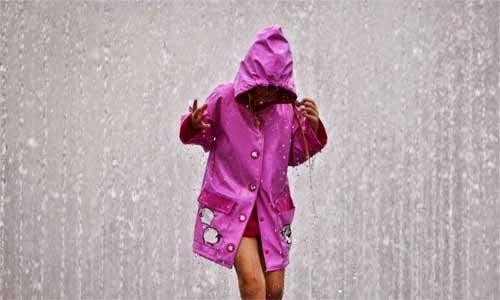 Did they once hurt you so much that you swore that you will never trust anyone again? After a disappointment in love, have you decided to close the doors to love?
Did they once hurt you so much that you swore that you will never trust anyone again? After a disappointment in love, have you decided to close the doors to love?Are you among those who believe it is better not to get too attached to not suffer?
In this case, you are probably victims of the Waterproof Effect.
Broken expectations and badly managed disappointments
When we interact with people we do so based on a set of expectations. We believe that others should behave in a certain way, with a certain "implicit obligation" to us. When these expectations are not met, we often feel frustrated, sad, disappointed and even angry. This is a normal reaction. However, as time goes by we re-adjust our expectations and adapt.
However, there are times when the disappointment is so great that we can't continue, we get stuck in that phase and feed the anger and resentment towards the other person. At some point we decide to stop suffering and wear a raincoat. That is, we protect ourselves from the outside world. Thus, they cannot hurt us again.
The classic example of the "Waterproof Effect" is the person who fails to return to engage in a relationship after a particularly painful disappointment. Or the person who does not want to keep a pet because “if something happens to him he will suffer a lot”.
Wearing a raincoat means protecting yourself from rain and wind, it implies preventing these elements from damaging us but it also means preventing our emotions from manifesting themselves. For this reason, if we look under the raincoat, what we often find is a deep fear tempered by insecurity and anger, feelings that continue to grow because we do not allow positive emotions to take their place.
3 risks of excessive protection
1. It prevents us from growing as people. Human beings are permeable, perhaps it is one of our best qualities. We get angry at injustice and rejoice with good news. When we compare ideas we change ours and when we interact with others we take on some of their habits. By allowing others to enter our innermost space we grow as people and broaden our horizons. Instead, by closing in on ourselves we are denying ourselves the possibility of growing.
2. It distances us from others. When we close ourselves we prevent people from entering our most intimate space, we place limits on the relationship by sending the signal that we are not willing to give ourselves completely. Therefore, sooner or later, the person will leave us to search for a more open and satisfying relationship. This confirms our hypothesis that "everyone forsakes us" or that "everyone is bad". Although in reality, the main culprits for the abandonment were us.
3. It leads to emotional inertia. Protecting ourselves excessively also entails another risk: condemning us to emotional inertia. When we prevent ourselves from loving, desiring or becoming passionate, our emotional life takes on a flat aspect in which there is no suffering, sadness and disappointment, but neither dreams and happiness. These people often live resigned. But is it really worth living without living?
When you need to protect yourself
It is worth remembering that there are times when the pain, suffering and disappointment are so great that we need to protect ourselves, at least until the wounds heal. In these cases, we can wear a raincoat, because starting a new relationship carrying with us the weight of accumulated bitterness and resentment is not the best formula for success.
However, we must be aware that this raincoat does not have to become our second skin. From time to time raise your eyes to the sky and if you start to distinguish the first rays of the sun, open up to new experiences, meet new people and trust others again. It is always worth it.
- 34


























